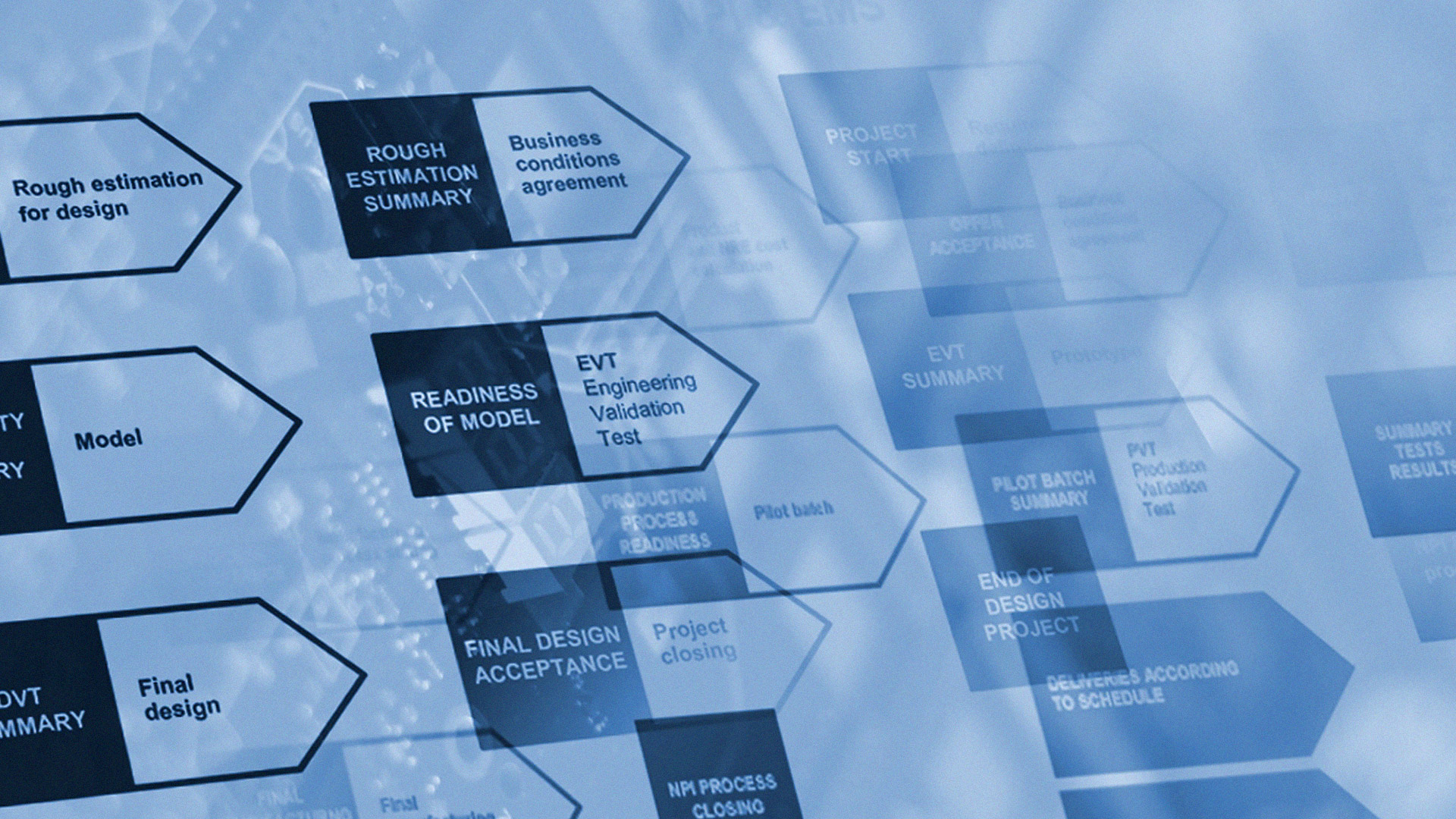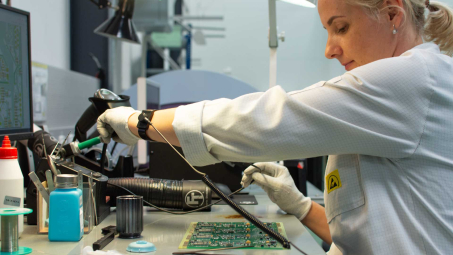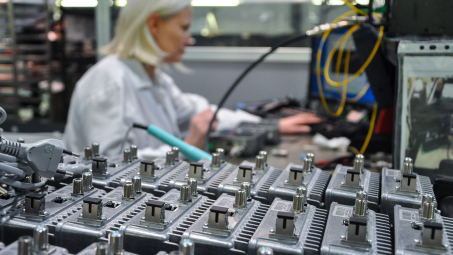Understanding the Risks of Delaying Business Model Verification in EMS: A Comprehensive Insight
The business landscape in the Electronics Manufacturing Services (EMS) industry is a complex labyrinth of evolving technologies, rapidly changing consumer demands, and stiff competition. In this dynamic scenario, a key factor that determines the success of a venture is the effectiveness of its business model. But how can one ensure the viability and scalability of a business model, especially in an industry as intricate and competitive as EMS? Read this article to find out!
Business Model Validation
Business Model Verification is a rigorous process of testing and refining a business model to ensure its viability, scalability, and resilience in the face of market dynamics. It serves as a robust, data-driven validation mechanism, offering invaluable insights that enhance investor presentations and mitigate risks, thereby improving the likelihood of investment and decreasing the potential for business failure.
This process, also known as business model validation, is the linchpin that holds the potential to transform a promising business idea into a successful venture.
Therefore, the business model of your EMS partner should match your preferences. It is advisable to interview the EMS company to identify how the team works and determine the range of solutions on offer that you can call on for support.
Defining Business Model Verification
Essentially, Business Model Verification is the process of testing a business model against real-world scenarios to evaluate its resilience in the market. It helps to identify potential flaws in the business model, rectify them, and refine the model to ensure it is robust and scalable.
Given the complexities of the EMS industry, which include evolving technology trends and stringent regulatory norms, the significance of Business Model Verification is particularly pronounced. It helps businesses validate their designs, ensure operational efficiency, and navigate the industry’s intricate landscape with confidence.
Therefore, Business Model Verification acts as a crucial instrument for businesses, allowing them to substantiate their potential and position themselves as viable investment options in the EMS industry.
In the EMS industry, the success of Business Model Verification is greatly influenced by comprehensive solutions. These solutions offer a comprehensive approach to assessing and confirming the business model, taking into account critical factors including revenue forecast, competitive analysis, and risk mitigation. This is particularly crucial in sectors such as medical devices, where the robust validation of designs and operational efficiency is essential for market success.
Another critical factor in the successful Business Model Verification in the EMS industry is organizational efficiency. By enhancing environmental performance, mitigating risk, lowering business overheads, and identifying opportunities to minimize waste and resource consumption, it ensures heightened operational effectiveness.
Comprehensive Solutions: A Mark of Excellence
Comprehensive solutions for business model verification in electronics manufacturing services (EMS) include:
- Incorporating the objectives and advantages of EMS providers
- Analyzing the framework and key components of the EMS
- Conducting environmental assessments
- Applying the solutions to various production types, including high mix low volume manufacturing
These solutions offer a comprehensive approach to assessing and confirming the business model, ensuring the success of the venture in collaboration with a national association.
Organizational Efficiency: The Keystone in EMS
Ensuring the organizational efficiency of an EMS partner is crucial in an industry where time and financial resources are pivotal to success. Efficient operations not only maximize productivity but also enable companies to allocate resources effectively, particularly in critical areas like research and development.
A well-organized EMS partner can improve employee engagement and retention, leading to a skilled and motivated workforce. This, in turn, promotes streamlined production processes, maintains high-quality standards, and ultimately contributes to the overall success and sustainability of the venture.
The Pivotal Role of Supply Chain Management
In the realm of business model verification, supply chain management assumes a crucial role. It ensures the seamless flow of goods and services from raw materials to final products, helping manage processes, collect and process data, and verify materiality and reliability. By reducing supply chain risks, controlling costs, facilitating growth, and improving overall profitability, it enables businesses to compete in the market and consistently deliver value to customers.
Timely delivery in a business model is ensured through effective supply chain management, achieved by streamlining processes, optimizing inventory levels, and investing in supply chain management software solutions. By maintaining strong relationships with suppliers and sharing forecasts and advance orders with them, businesses can avoid delays, ensuring the successful delivery of their offerings and the sustained success of your business.
The Fusion of TCO, Time to Market, and Quality
In the EMS industry, Total Cost of Ownership (TCO) denotes the cumulative costs linked to a product or service throughout its lifecycle, encompassing:
- Acquisition expenses
- Operation expenses
- Maintenance expenses
- Disposal expenses
TCO plays a crucial role in business model verification by offering a comprehensive view of the expenses linked to establishing and sustaining a business model. It aids in evaluating financial viability and facilitating well-informed decision-making.
A faster time to market offers a competitive edge as it enables businesses to:
- Swiftly validate their models
- Make necessary adjustments based on market feedback
- Take advantage of market opportunities
- Commence revenue generation at an earlier stage
This pivotal aspect in business model verification allows companies to swiftly evaluate viability and respond effectively to market demands.
Case Studies: Business Model Verification in Action
Case studies of the EMS partner provide critical knowledge on the practical application of Business Model Verification.
Verifying case studies of an Electronics Manufacturing Services (EMS) company is essential for potential electrical goods providers. Case studies offer a practical glimpse into how the EMS company has applied their Business Model Verification process, demonstrating their expertise, problem-solving abilities, and real-world success.
By reviewing past projects, performance metrics, and client testimonials, businesses can assess the EMS company's track record, mitigate risks, and ensure alignment with their own goals. These case studies provide transparency, accountability, and confidence in forging a productive partnership, ultimately enhancing the likelihood of success in the electrical goods supply chain.
If you are still unsure about what to ask your potential EMS partner, check out our free e-book "6 don'ts in electronics manufacturing services".
Don’t delay the business model verification
As we have seen, Business Model Verification is a crucial process in the EMS industry. It serves as a robust validation mechanism, offering invaluable insights that enhance investor presentations and mitigate risks. By leveraging comprehensive solutions, enhancing organizational efficiency, and implementing effective supply chain management, businesses can ensure the success of their business model verification process.
This business model represented by the EMS company helps you understand the importance of the supply chain in outsourcing manufacturing, and perceive it not as a discrete entity but rather as a part of the bigger picture.
The flexible business model your EMS partner represents is crucial to finding the best fusion of Total Cost of Ownership (TCO), time to market and quality.
Intrigued to see if we're a perfect fit for your needs? Contact our experts and find out!









